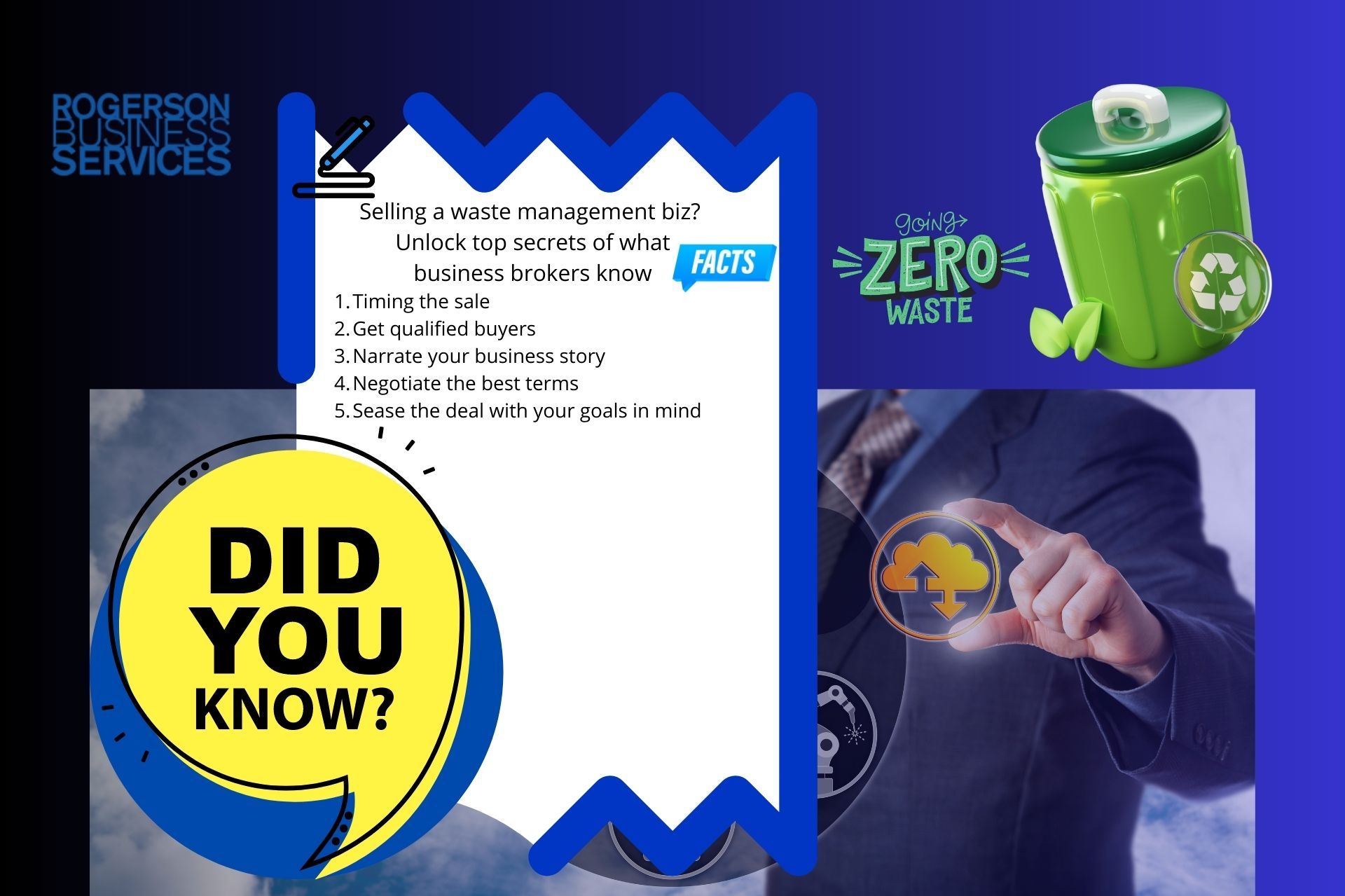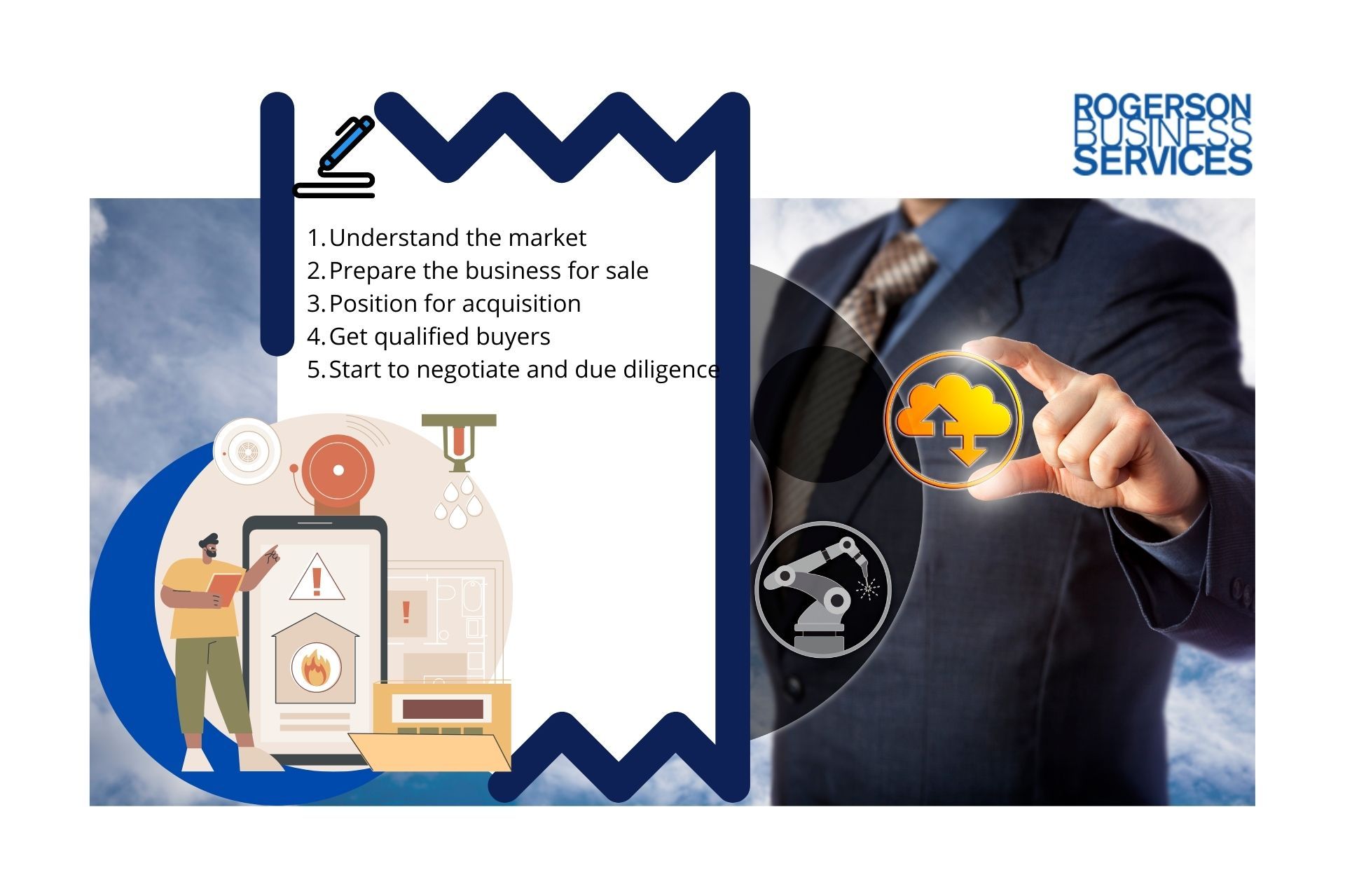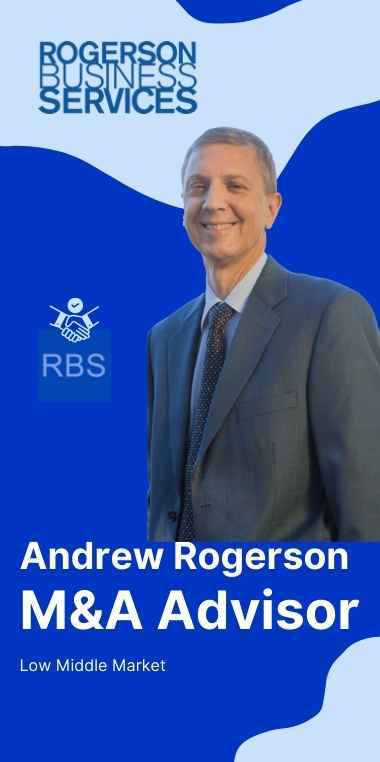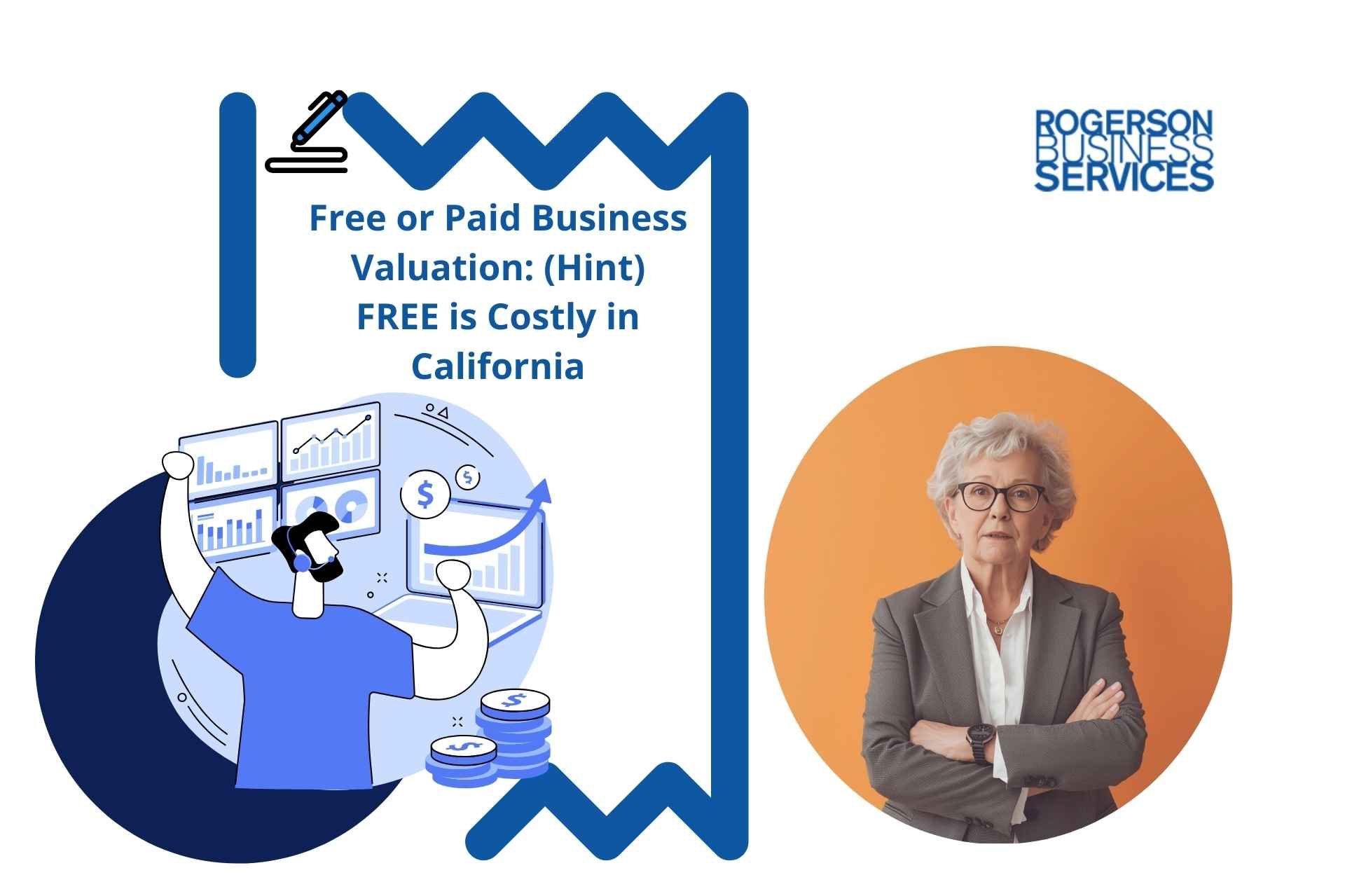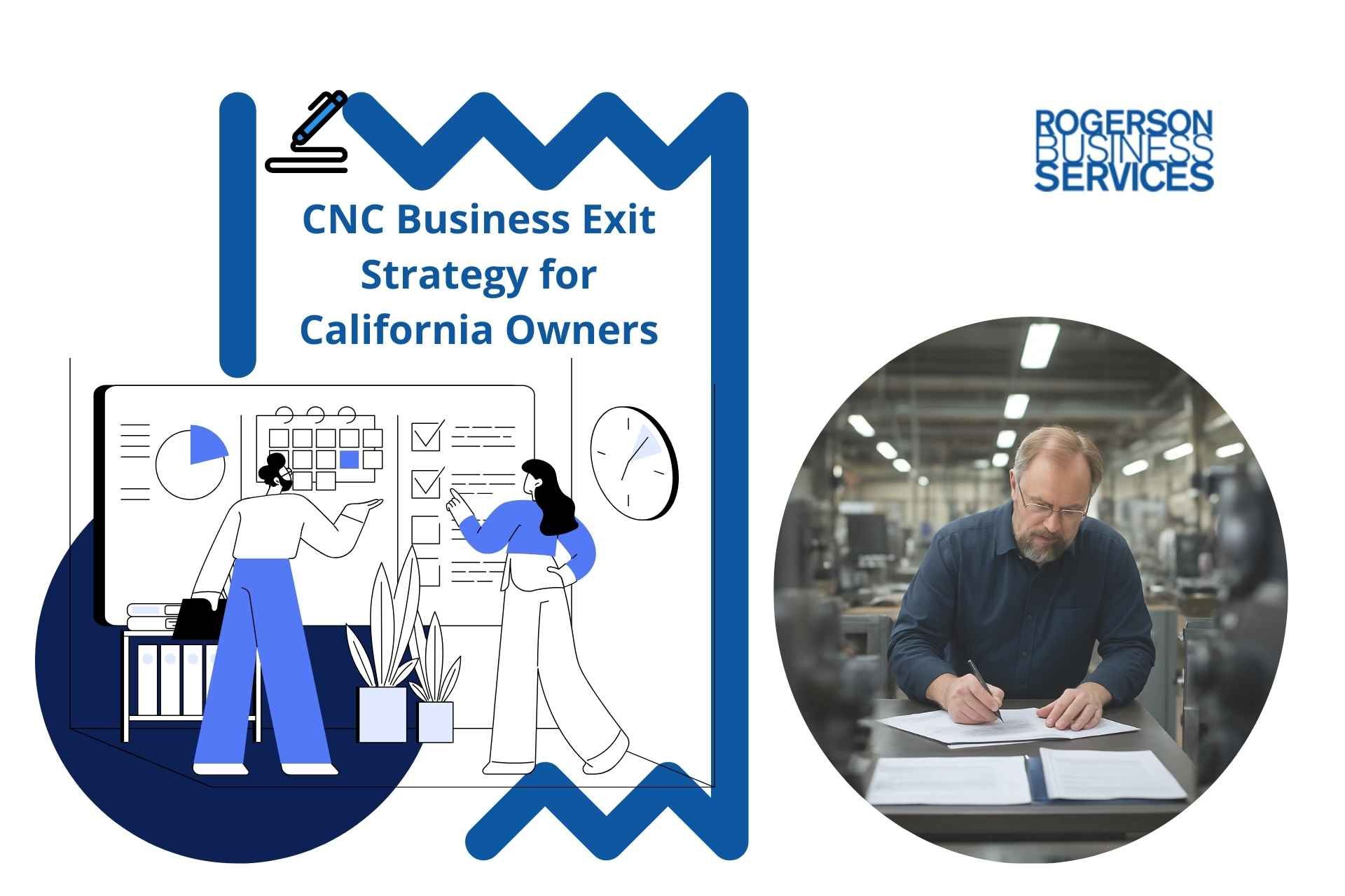The Ultimate Guide To Help Sell an Industrial Services Company
Considering selling a lower middle-market industrial services company in California can be overwhelming. Without a proper, well prepared, exit plan, and a middle market business broker to facilitate the process, there is no way to guarantee that you made the right decision.
Get The Guide
M&A Guide
Increase Your Chance Of Success!
Guide to Help Exit an Industrial Services Company
Everything you need, all in this sell an industrial services business guide
Exit Strategy for Industrial Services Company
Deciding to sell the industrial services business you've spent years pouring your heart and soul into isn't easy. However, the lure of retirement eventually knocks at most entrepreneurs' doors.
Once you've decided that you're ready to sell your business, you might be wondering—what's next?
In short, you'll need to develop a solid exit strategy.
Exit strategies for industrial services companies are critical regardless of where your business falls—the lower middle market and mid-market companies for sale all require planning to ensure a smooth business transfer.
In this guide, we'll cover important factors to keep in mind as you're preparing to sell your California industrial services company. We'll also show you why it's important to embrace the benefits of an M&A exit strategy versus trying to perform a business owner exit strategy.
Top Reasons to Consider an Exit Strategy
Selling your business is an exciting yet overwhelming experience, especially if this is your first time. Exit strategy planning involves ensuring a smooth transition of ownership between the business owner to a new business owner.
Selling industrial services companies in California is particularly difficult due to environmental regulations. You'll need to make sure your business complies with special licensing and certifications. You'll also need to go through an escrow process, which can impact the ease of identifying qualified buyers.
Before we cover how to prepare an exit strategy, let's look at why a business exit strategy framework is important.
Accurate Valuations
One of the first steps in developing an exit strategy is for the company's current owner to analyze its strengths and areas of improvement. That way, they'll be able to boast about where their company is excelling and have the opportunity to fix its downsides if it makes financial sense to do so.
Identifying Buyers
Business owners without an exit strategy lose out on the potential for attracting buyers. Without an explicit account of finances, documents, and valuations, you could inadvertently deter the people who are best suited to purchase your business.
Managing Unexpected Offers
Sometimes, you might be taken off guard by an offer you weren't expecting. Such a situation is common when small companies seek mergers to improve their market share and buying power. If you already have an exit strategy in place, you'll be able to make decisions based on what's best for your situation.
Painless Transition
There's a lot that goes into transferring company ownership, especially if that transfer includes employees and managers. The exit strategy will mandate how the new business owner will handle inherited—or lack thereof—people and assets to ensure a smooth transition.
Another benefit to a well thought out transition exit plan is that you'll be able to advise the new owner on your highest performing employees, keeping them happy and helping to ensure your business thrives after you hand it over.
Taxes
If you don't have an exit strategy, you might inadvertently transfer your tax implications to the person who buys your business. An exit strategy will help you understand what kind of taxes you'll be required to pay upon selling your industrial services company and see if there are any workarounds for reducing your taxes.

How To Sell A Business - Industrial Services
Those who decide to put up their California businesses for sale in exchange for embracing retirement life is a big—and intimidating—step. In analyzing M&A trends, the information below will help you understand the process of putting up your lower mid-market businesses for sale.
Preparing to Sell a Business—Industrial Services Companies
There are several initial questions a California business owner must answer as they consider selling their business. You should be able to answer the following before making a move:
- Is the sale a financially sensible option? Another way to look at it is this: What are the earnings that the industrial services company will generate if no changes are made to how it currently operates?
- What is the value of any future dividends or distributions after you’ve paid taxes? The number should be greater than the amount you’ll receive after you pay taxes and professional consultants.
- Do you have plans for how you’ll utilize the profits from your business once you’ve sold it?
- What is the estimated rate of return from your profits?
- If you have business partners, do they agree with your desire to sell your industrial services company?
Types of Industrial Services
There are many potential buyers looking for an Industrial Services business for sale be they in San Diego, Los Angeles Country or Orange County, the Central Valley, Bay Area of San Francisco or the rest of California. Types of industrial services and their subcategories your company may fall under include:
- Industrial and facility services
- Industrial automation companies for sale
- Facility management companies for sale
- Property maintenance company for sale
- Energy services & energy equipment
- Energy services company Vol 590 for sale
- Environmental services companies
- Hospital environmental services companies for sale
- Water treatment companies for sale
- Environmental consulting firms for sale
- Environmental business for sale
- Rental services and equipment
- Equipment rental business for sale
- Construction equipment rental business for sale
- Heavy equipment rental business for sale
- Tool and equipment rental business for sale
- Medical equipment rental business for sale
- Energy efficiency
- Energy efficiency business for sale
- Environmental consulting business for sale
- Safety, inspection, and compliance services
- Safety consulting business for sale
- Health and safety business for sale
- Fire protection business for sale
- Fire extinguisher service business for sale
- Fire suppression business for sale
- Fire alarm business for sale
- Fire safety business for sale
- Safety consulting business for sale
- Specialty manufacturing
- There are many aspects to specialty manufacturing companies for sale, all of which fit within the industrial services industry.
- Let's look at some categories that your specialty manufacturing company might fall under.
Spare Parts: Provision of replacement components for the capital equipment.
Repair:
Restoring capital equipment to sound condition after damage.
Reconditioning: Restoring capital equipment to good condition, especially by renovating or rebuilding. Reconditioning is more extensive in scope than repairing.
Retrofit (performance upgrade): Replacement or addition of one or more hardware and/or software components, which provide better overall performance. Retrofitting is more extensive in scope than reconditioning.
Inspection: Periodical examination of capital equipment for flaws.
Maintenance: Activities required to keep the capital equipment in proper condition. The industrial maintenance services market size is vast, ranging from preventive, scheduled, unscheduled, and predictive maintenance companies.
Technical Support: Provision of advice to users of the capital equipment via a call center, webpage, etc.
Technical Consulting: Offering of technical expertise, such as engineering skills and ICT tools, to solve a specific problem related to the customer's industrial production process.
Performance Audit: Conducting an audit of the customer's processes, analyzing the performance, and identifying areas for improvement in terms of cost-efficiency and uptime.
Operation: Day-to-day running of the production process, including all related services.
Customer Training: Customer training or activities to familiarize customers with the use of hardware and software, regardless of whether it takes place before, during, or after the capital equipment is in place.
While these industrial services examples offer a good idea of the large field in this sector, some people own even more niche businesses, so don't feel like you have to limit yourself to this list.
Due Diligence Checklist for Selling a Business
Before you sell your California industrial services business, you must stay organized and cover all your bases to ensure a smooth sale. Below are some questions should be able to answer:
- Does your business have all necessary paperwork that details its operation? It’s important to have quick access to this to show buyers.
- Does your business have all its data ready to share with a buyer? For example, you should be able to show proof of financial statements, payroll registers, enrollment information, invoicing information, and customers, among others.
- What kinds of add-backs did you make to your income statement to evaluate your industrial services company?
- If you played around with different pricing, how would that look in terms of how much you’d owe in taxes?
While we're on the subject of checklists, our
Business Transition Checklist will kick start you on making sure you cover your bases when you're getting ready to sell your business.
Business Valuation
What is it? Why do I need one if I am planning to sell a business? What is my business worth?
Business Valuation—What's it Worth?
Business valuations involve identifying a company's economic value so you can put your industrial services business up for sale with confidence that its price tag balances competitiveness and feasibility.
Determining your business's fair value through a professional business valuation is critical to gaining respect among potential buyers. There are various ways to determine a business valuation, and many factors can impact its outcome.
Let's delve into the factors that can affect your industrial services business valuation.
Factors Affecting Business Valuation
When performing a business valuation to sell your industrial services company in California, the primary goal is to find out the EBITDA (Earnings Before Interest, Taxes, Depreciation, and Amortizations). For taxes, only federal and state income taxes are counted. The interest portion is derived from bank or shareholder loans.
The EBITDA involves analyzing a business' income statement to confirm the approximate cash flow that the company generated over a specific period of time.
Some factors that go into determining the EBITDA include:
- Company's lifespan. New businesses with less than one year of operation won't have enough information to provide a business valuation as accurate as older companies.
- Location and demand in the current markets
- Condition of business equipment
- Brand awareness, whether that be locally or on a larger scale
- Quality of your management and staff team
The EBITDA is a wonderful starting point to begin your business valuation. However, to get an even more accurate number, you should implement the Discounted Cash Flow method. By performing a projection for the next few years, the Discounted Cash Flow offers a better indication of equity value.
However, there's a downside to using the Discounted Cash Flow method—since it's all about predictions for the future, it can be difficult to determine the discount rates that go into the calculation.
Because of how detailed business valuations are, serious business owners hire a Merger and Acquisitions broker (M&A broker) to perform them. M&As play a valuable role in setting you up for a smooth and successful transition when selling your business, so we'll be covering their role in more detail next.
Learn how to plan an exit for your industrial services company
Sell-Side M&A
Four step process to market your California lower middle market business for sale
01 Exit Plan - business valuation
Your potential buyers can come from many areas. Employees, individual and group investors, Private Equity Groups, and even competitors who may have an interest in purchasing your business. If a competitor is interested, you don't want to reveal too much information about your business, especially anything that could hurt your business if the deal falls through.
Once you decide to sell, get your business ready, and get help from a trusted and accredited California M&A Advisor.
An M&A Advisor will vet potential buyers to make sure they are qualified and are serious about purchasing your business.
A California Licensed M&A Advisor knows the ins and outs of selling a California business and can help you get your business in shape to get you the best deal.
02 Buyer Analysis
One of the first things your M&A Advisor will do, is help you to create an exit plan. An M&A Advisor knows exactly how to plan an M&A exit strategy. In fact, you might get a M&A Advisor to help you with an exit plan long before you're ready to sell your California company.
An M&A Advisor is knowledgeable about how to calculate the value of a business to sell and will aim to get the highest value for your business. Once everything is ready to go, they'll list your business for sale. An M&A Advisor will be an expert at listing a California businesses for sale.
After your business is listed, the M&A Advisor will handle all the marketing of your business to promote deal origination and get you in front of potential buyers. They'll also set a buyer list and work with you to figure out who to go after for the best value.
03 Deal Origination - marketing
An M&A Advisor will then work to get you as many qualified and motivated buyers of your business as possible.
They will market your business through the proper channels, including social selling and targeting and generating interest. They'll vet and follow up with interested buyers whether off-market or publicly listed.
Once the offers come in, your M&A Advisor will evaluate all offers and conduct market offer analysis to make sure you're getting the best deal.
04 Negotiation & Closing
Buyer Due Diligence
Once a buyer is performing their own due diligence, the M&A Advisor will help you navigate the process to make sure everything is running smoothly. They'll negotiate a Letter Of Intent between you and the buyer to lay out the proposed aspects of the deal. Your M&A Advisor will also help you gather all of the necessary paperwork discussed above. If the buyer asks for additional documentation, your M&A Advisor can help guide you.
As a buyer is going through the due diligence process, they will be on the lookout for red flags about your business. An experienced M&A Advisor is knowledgeable about these warning signs and can help you prevent them. Red flags may include refusing to disclose why you're selling, not allowing time to conduct due diligence, refusal to introduce the buyer to employees, suppliers, landlords, and more.
Definitive Purchase Agreement
The M&A Advisor will oversee the Definitive Purchase Agreement with the help of the transaction attorneys to make sure both parties are happy with the terms. A Definitive Purchase Agreement protects both you and the buyer as it will clearly state exactly what is and is not being sold. It can also protect the buyer from certain liabilities. A Definitive Purchase Agreement will also help you deal with the legal complexities of selling a California lower middle market business.
Once the Definitive Purchase Agreement is finalized, the M&A Advisor will help with any final items that need to be done as part of the closing process including working with a California Licensed Escrow company.
Closing - Finalize the Transaction and Close the Deal
Finally, your M&A Advisor will help prepare the close of your transaction. Once the closing is complete, they'll assist with overseeing the transition of the business change of ownership.

What is the Role of M&A Brokers in Selling an Industrial Services Company?
People who want to put up their lower middle market businesses for sale should always hire an M&A broker. The titles "M&A Business Broker" and "M&A Advisors" are often used interchangeably, but it's worth noting their nuances.
Both M&A brokers and advisors support people with buying, selling, and merging businesses. Whereas brokers offer their service geared towards a smaller region, M&A advisors typically offer the same service on a national or international level.
M&A brokers typically work with single transactions for stand-alone businesses. M&A advisors, on the other hand, handle more complex, multi-location sales and mergers with higher price tags.
Buyer Analysis—Qualifying Potential Buyers
If you own an acquisition-oriented business, you might be wondering—what can you do to increase your chances of success when selling your industrial services company? The question is essential for owners pursuing transactions with strategic growth as a goal.
A company choosing growth through acquisition means that they purchase one or more companies that would supplement their business or offer direct competition. Acquisition buyers don't care about the company's size—they care about its current standing and future potential.
Therefore, even small and lower-middle market companies should be prepared to receive an offer from an acquisition company. To help your business attract growth acquisition buyers, you should work on building up your market reputation, ensuring your current clients can be retained by the future owner, and verify cash flow, assets, and liabilities.
Now, you might be wondering—aside from acquisition buyers, who are other potential buyers on the industrial services market? Below are some examples:
- Competitors
- Employees
- Individual investors
- Private equity groups
- Family offices
- Strategic, synergistic, or corporate investors
Owners must be careful about not revealing too many details about their company if they’re speaking with a buyer who is a competitor.
Once you've decided to sell your industrial service company, start preparing your business and identify trusted and accredited M&A brokers to help you.
Free Business Valuation Guide
Learn more about Business Valuation and why it matters the most while planning an M&A exit strategy.
Benefits of Hiring an M&A Broker
The role of M&A brokers is to be a business seller's confidant and cheerleader. Industrial service M&A brokers are experts in selling and buying businesses in your field. They have extensive training and contacts to ensure your paperwork is in order and that you secure the best possible deal when accepting a buyer.
M&A brokers help you get the best deal when selling your company by performing a business valuation, ensuring your business is priced competitively. If you price your business too high or too low, you won't attract the right—or any—buyers. They also support you with vetting potential buyers, identifying those who are serious about making an offer.
While business owners tend to focus on how M&A brokers can help them earn more from their company's sale, brokers have many other benefits. They include:
- Saving you time. There's a huge learning curve to understand the process of selling an industrial services company in California. So, making connections with potential buyers and gaining the years of experience a broker has is almost impossible for any person who decides to sell their business by themselves.
- Introducing you to buyers. It's an M&A Broker's job to be familiar with your market and network with potential buyers. They also have an extensive network of colleagues to bounce potential buyer leads.
- Price negotiation. Let's face it—you want to get the highest price possible for your business but negotiating that price with buyers is a delicate process. Your M&A broker will do this for you, pulling from their negotiation experience to get you the best deal possible.
- Managing obstacles. Selling a company rarely happens without a few setbacks. Legislation laws and market uncertainty are among the many interferences that can delay the sales process. It's your M&A broker's job to handle these obstacles for you.
- Assuring you. When it comes to selling a business, countless tasks can fall through the cracks. By hiring an M&A broker, you'll have peace of mind knowing that it's their responsibility—and most importantly, they have the experience—to manage selling your business on your behalf.
If you are a lower middle-market business owner and wonder if hiring an M&A Broker is the right option for you, rest easy.
Qualified M&A Brokers should manage all the following phases and activities:
Exit Plan
M&A brokers will recommend the best path to sell a business as part of their M&A strategy. They'll form the strategy to execute listing an industrial services company for sale. They'll also perform a business valuation, which will help you get the highest value possible for your company.
A part of the exit plan includes detailed marketing. Your M&A Advisor will prepare activities necessary to promote your business, showing why your business is such a deal to buy. Finally, your broker will set up a buyer list, recommending the best people to target for maximizing your profit.
Deal Origination—Marketing the Deal
Your M&A Broker will set up an outreach program that involves contacting vetted buyers and generating interest. They'll implement social selling and targeting practices to distribute information about your company.
The final phase of the deal origination is for your M&A Advisor to evaluate all the offers for your business and conduct a market offer analysis.
Negotiating the Definitive Purchase Agreement
Offering middle-market businesses for sale involves several steps. The
M&A Advisor works closely with you and your
legal advisor, especially while negotiating and finalizing the
Definitive Purchase Agreement. This Definitive Purchase Agreement helps both parties reach their goals for the transaction and allows no room for error as it completely represents the legal wishes of each party.
A good
M&A Definitive Agreement is the lynchpin of a good transaction. Both seller and buyer exchange a large amount of information from different sources. This is often over many months of conversations. These exchanges are then condensed, with their individual interests, as best as possible into the Purchase Agreement.
Items a typical Definitive Purchase Agreement may include:
- Treatment of Shares, Options, and any other Securities; if appropriate to the transaction
- Representations and Warranties
- Covenants
- Solicitation (“No Shop” clause)
- Financing
- Termination Fee (or “Break-Up Fee”)
- Indemnification
- Material Adverse Change (MAC) and Material Adverse Effect (MAE) Clauses
- Closing Conditions
The Definitive Purchase Agreement can have potential pitfalls, so your M&A Advisor needs to keep the communication open with the Buyer and their Deal Team as well as the Seller and their Deal Team.
The M&A Definitive Purchase Agreement also needs to include details about tax obligations and consequences, especially if shareholders are involved.
Avoiding Pitfalls if you have a Buy-Sell Agreement
What if the seller is two or more individuals?
Many businesses have multiple owners or shareholders. Getting an agreement from a majority of the shareholders about selling the business and being willing to accept an offer can be challenging. One of the shareholders may not have any interest in selling the business at all or may want something specific most buyers will not be willing to agree. If this is the case, hopefully there is a Buy-Sell Agreement in place as this will outline what each shareholder needs to do. A few years previously I had a transaction with 9 shareholders. One shareholder with a minority interest initially refused to sell. Eventually they changed their mind but it was stressful while this played out.
If no Buy-Sell Agreement is in place and there is tension between the owners and shareholders, the pressure to decide the future direction of the business may be challenging. This article provides additional information for an owner or shareholder with
how to avoid buy-sell agreement pitfalls. To help their clients, M&A Advisors should understand the importance of assumption of liability, so their buyers and sellers know who is responsible for any lingering claims.
The agreement also needs to have information about indemnity clauses regarding operations. For Industrial Services Companies, concerns about environmental liability, breaches of warranties, and other issues need to be factored into the indemnity clauses of a Definitive Purchase Agreement.
Buy-sell agreements can be confusing, so it is helpful to learn
how to understand buy-sell agreements
and
how a buy-sell agreement can save a business.
Negotiation—Buyer Due Diligence
When it comes to the negotiation phase, buyers will ask many questions and expect to see detailed documents about your business. Whether you've chosen to work with middle-market M&A Brokers or a lower middle market M&A broker, whomever you hire, it's their job to ensure everything runs smoothly.
The negotiation begins with a Letter of Intent (LOI). An LOI is an initial, non-binding agreement between the parties in a proposed business deal. The LOI is critical because it establishes the aspects of the deal.
During the negotiation phase, your M&A broker should be prepared to show the following during the buyer due diligence process.
- Income statements
- Records of accounts receivable and payable
- Balance sheets and tax returns including business activity statements (typically from the last 3 – 5 years)
- Profit and loss records (last 2 – 3 years)
- Cash deposit and payment records, as reconciled with the accounts
- Utility accounts
- Bank loans and lines or letters of credit
- Minutes of directors'
- meetings/management meetings
- Audit work paper files (if available)
- The seller's claims about their business (e.g., their reasons for selling, the business's reputation, etc.)
- Privacy details (e.g., intellectual property, trademarks, patents)
- Existing contracts with clients/staff
- Partnership agreements
- Lease arrangements
- Details of the business's automated financial systems
- Details of credit and historical searches related to the business
- Value of the business to check whether the asking price is fair
Need help with valuing & selling your industrial services company?
Rogerson Business Services (RBS) is an M&A Advisory for lower middle market businesses that is built on trust and ethics. Andrew Rogerson, Certified M&A Advisor, can help you find answers to all your questions, introduce you to better opportunities, and manage the buying and selling an industrial services company in California process's integrity while keeping every aspect of sales confidential.

Warning Signs for the Buyer
A buyer expects transparency when purchasing your company. Therefore, it's your M&A Broker's job to ensure that there's a successful transition between you, the seller, and the buyer.
If a buyer encounters any of the following situations or behavior, it's unlikely they'll follow through with purchasing your business.
- Doesn't disclose important information. Examples include the reason for selling, financial statements, licenses, permits, and staff contracts.
- Won't agree to a trial period or enough time to conduct due diligence. A minimum of 30 days is the industry standard.
- No introductions happen between suppliers, landlords, or estate agents.
- Current legal proceedings are occurring.
- The seller seems eager to close the deal quickly.
- The seller has a questionable credit record and history.
Negotiation
Negotiation involves a buy-sell agreement. A buy-sell agreement is a document that details the value of a business and aids in the transition of business owners when a business owner decides to leave their business. A buy-sell agreement is important because it's a legally binding contract that confirms how a future sale will play out for the business partners.
Now, we'll explore the ins and outs of buy-sell agreements pertaining to selling your industrial service business in California.
How to Understand Buy-Sell Agreements
There are three kinds of buy-sell agreements:
- Asset purchases
- Stock transfers
- Owner's agreement
Most likely, the buyer will request an asset buy-sell agreement when you sell your industrial services business. The benefits of asset purchase agreements are that the buyer can choose the liabilities they'd like to undertake.
Stock transfers involve moving the capital stock of the business to a buyer. The business will continue to operate as normal, and you, as the seller, won't be responsible for paying off any liabilities.
If you plan on only partially transferring your industrial service business in California, an owner's agreement is an excellent option. An owner's agreement protects both the buyer and seller from, for example, a spouse who wants a portion of the business during a divorce.
How a Buy-Sell Agreement Can Save a Business
Buy-sell agreements are designed for two or more owners of a business. Over time, people's interests, relationships, and situations are prone to change. If one person decides to leave the business or puts in more work than the other, having a buy-sell agreement will save time and stress.
It's important for buy-sell agreements to have uniquely written wording for each business' situation. Buy-sell agreements should be written by an attorney and consider factors such as time commitments, management responsibilities, and a company's special needs.
Buy-Sell Agreement Benefits
Buy-sell agreements should be written when you first acquire your business or bring in a new partner. It will allow you and your partners to work under legally agreed upon roles and conditions. As such, stress and relationship tensions are often reduced among business owners who have buy-sell agreements.
Another benefit of a buy-sell agreement is that it can cover insurable risks. For example, if your business partner dies, a well written buy-sell agreement will help prove to an insurance company that you should receive compensation for the income they had been generating for your business.
The Legal Intricacies of Buying and Selling a Business in California
California has its own unique laws when it comes to buying and selling an industrial services business. For example, escrows are required. While an escrow can feel like another hurdle to overcome when selling your business, it's in place to protect both you and the buyer.
California has its own tax policies, and it's in your best interest to work with an accountant or a tax attorney. They'll make sure you're not breaking any state or federal tax laws. Generally speaking, stock sales tend to benefit the seller, and asset sales tend to benefit the buyer in terms of tax rates.
Negotiate the Terms
When you're working with your partner(s), it's important to negotiate the terms of your buy-sell agreement so that it's a document that all parties are comfortable with. Some negotiation factors to consider include whether a business partner can trigger the buy-sell agreement at their will or if there needs to be an event that allows them to leverage the agreement.
Finalize the Contract
The most effective buy-sell agreements involve an attorney and a certified public accountant. They'll use their experience to craft a document tailored to your situation and have the power to make it legally binding.
Closing
The final step your M&A Advisor has in supporting you with selling your industrial services company is to finalize the transaction and close the deal. They'll ensure that the transition process is smooth and stress-free as you enter this exciting new phase in your life.
M&A LOWER MIDDLE MARKET ADVISORY
Why Work With Rogerson Business Services?
Business Valuation
Many sellers neglect the business valuation and methodology early in the process, only to become frustrated after the deal has been finalized. Rogerson Business Services can help you understand the value of your business based on different methodologies.
Legal Due Diligence
When selling a business, the legal standing of the business determines the smoothness, efficiency, and speed at which the transaction is finalized. M&A Advisors offer a sell-side M&A process backed by the viability of a California Licensed business or transaction attorney. With a licensed California M&A Advisor, you can be certain the legal documents involved in the sell-side M&A process is detailed and accurate.
Business Analysis
To avoid wasting time with unqualified buyers, get help from a trusted, licensed, and accredited California M&A Advisor. An M&A Advisor will vet potential buyers to make sure they're legitimate and are serious about purchasing your business. An M&A Advisor knows the ins and outs of selling a lower middle market business and can also help you get your business in shape to get you the best deal.
Financial Due Diligence
Our service includes deal team professionals to assist you. From financial to legal documents to tax and procedures, we want to make sure you are covered.
If you have your own in-house team of advisors, Rogerson Business Services can help make the M&A sell-side process as easy as possible by offering insights that help the team understand and are in alignment with the same goals as yours.
Definitive Purchase Agreement
The Definitive Purchase Agreement is usually extremely complex. It is easy to overlook all the terms and legal jargon, but every paragraph is important and duly considered. It is therefore critical to ask questions and ensure you are comfortable with the final set of legal documents you need to sign.
M&A Sell-Side Targeting
Rogerson Business Services provide Mergers & Acquisition M&A Sell-Side Advisory. We zero target off-market, accretive, private equity and strategic buyers with an interest in lower to middle market companies or businesses to maximize incremental growth value.
FAQ's
Sell-Side M&A
Sell an Industrial Services Business
Industrial Services Business Valuation
Ten Reasons to Plan a Business Exit Strategy with
Rogerson Business Services
1. Ethics
Rogerson Business Services are members of the M&A Source, International Business Brokers Association (IBBA) and California Association of Business Brokers (CABB) and adhere to their code of ethics.
2. Confidentiality
Rogerson Business Services assists you professionally in a highly confidential manner to protect your personal and financial details.
3. Vetted businesses for sale
Rogerson Business Services have access to an inventory of businesses including unlisted businesses for sale in California.
4. Facilitator
Rogerson Business Services are specialists in business transitions and understand the need to respect all parties in the transaction. There are many steps to value, sell and buy a business. Rogerson Business Services have successfully navigated these steps many, many times.
5. Valuation
Rogerson Business Services can provide you an Opinion of Value of a business you wish to sell or buy.
6. Due diligence and escrow
Rogerson Business Services has the knowledge to work through leases, franchise agreements, finance requirements, licensing, California escrow requirement and many other items so the sale of a business is successful.
7. Negotiation
Rogerson Business Services practice win/win negotiation skills. Negotiations are rarely perfect and so a win/win approach is the best way forward.
8. Financing and funding
Rogerson Business Services has professional lenders that can assist with finance to successfully buy a business.
9. Resource
Rogerson Business Services is an active member in the associations of the M&A and Business Broker industry including M&A Source, the International Business Brokers Association (IBBA), California Association of Business Brokers (CABB), International Society of Business Appraisers (ISBA) as well as other professional organizations.
10. Closing and transfer
Rogerson Business Services works with you each step of the way. This includes managing the buying or selling of your business through initial negotiations, due diligence, escrow and the all-important closing.
We built this amazing step-by-step-guide to help "Exit an Industrial Services Company" - it is yours (free)
Rogerson Business Services provide Mergers & Acquisition M&A Sell-Side Advisory. We zero target off-market, accretive, private equity and strategic byers in lower middle market companies or businesses to maximize incremental growth value.

